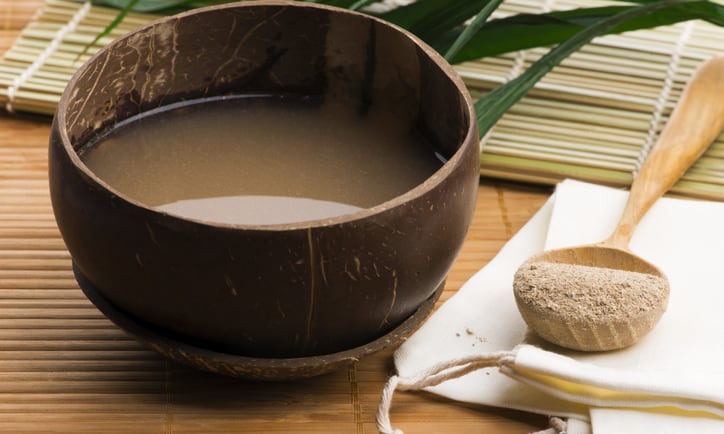A federal judge ruled in favor of New York City public health and safety officials who shut down two Kavasutra locations for serving kava tea.
The New York City Department of Health has been issuing summonses to the kava cafés, alleging that kava served in water is an unsafe food additive and that its sale violates Health Code § 71.05, which pertains to adulterated food.
This follows a 2020 FDA review and subsequent New York State regulation from March 2025 that declared traditional kava drinks as unapproved food additives due to safety concerns and potential negative health impacts.
Food or food additive?
Kavasutra argued that kava, when prepared as a root plant and mixed with water, should be considered a single-ingredient food under the federal Food, Drug and Cosmetic Act and is therefore presumed safe unless proven otherwise by the Food and Drug Administration.
In her 23-page ruling, U.S. District Judge Valerie Caproni opined that Kavasutra was using kava as a food additive when adding it to water. The judge pointed to the federal Food, Drug and Cosmetic Act (FDCA), which she said states that water on its own is considered a food and therefore adding the kava plant to water constitutes a food additive.
In the ruling, the judge also stated that kava “changes the chemical composition of water from H2O to a liquid that includes kavalactones, chemicals that have hepatotoxic properties. No one can seriously dispute, then, that kava ‘affect[s] the characteristics’ of water, rendering kava a ‘food additive’ under the FDCA when steeped in water.”
“The court found that kava root when added to or steeped in water is considered a food additive under the Federal Food, Drug, and Cosmetic Act,” said Robert Durkin, partner at Amin Wasserman Gurnani, LLP.
“This is contrary to the positions taken by FDA and many state regulators who have determined that traditional kava-root preparations are not violative. This case will likely cause a lot of confusion and concern in the kava space.”
Prohibitions in Germany, Switzerland, France, and Canada
The judge also noted several examples where FDA has concluded that kava’s indiscriminate use as a beverage is not safe for human consumption.
The judge noted that kava is prohibited in Germany, Switzerland, France and Canada due to its potential to cause liver damage, citing a World Health Organization examination of 93 cases of suspected liver toxicity related to kava.
In 2002, the U.S. Centers for Disease Control and Prevention reported on kava-related liver toxicity, added the judge, and the FDA issued a warning on March 25, 2002, about kava’s potential connection to severe liver damage, including hepatitis and cirrhosis.
Judge Caproni wrote that the FDA has concluded that, “indiscriminate use of kava as a beverage ‘is not safe for human consumption’ because ‘there is no food additive regulation in effect that provides for the safe use of kava as an ingredient in conventional foods,’ there is no ‘basis for such use to be considered as generally recognized as safe (GRAS).’”
Therefore, the FDA categorizes kava as an unapproved food additive when used in conventional foods, she wrote.
In response, the Kava Coalition asserts the information the judge relied is outdated.
“Recent court actions, including the decision in Kavasutra v. Adams, relied on outdated and discredited allegations of liver toxicity from a 2002 German case” said Douglas La Rose, executive director at the Kava Coalition.
“That case, and others like it, have long been dismissed by the scientific community as flawed and unsupported by credible evidence. In the more than two decades since, peer-reviewed research and decades of safe consumption have shown no causal link between kava beverages and liver harm.”
La Rose also highlighted the American Herbal Products Association (AHPA) Botanical Safety Handbook that affirms kava’s long history of safe use.
“The handbook’s safety review includes all human clinical trial results and finds that liver injury is extremely rare and only tenuously correlated to kava,” La Rose said. “It also documents kava’s use as a food in the United States prior to 1958, including documented sales in the 1915 Sears catalog, demonstrating that its presence in American commerce predates modern food additive laws”
While the FDA does not currently recognize kava as GRAS, the Hawaii State Department of Health has formally rejected that position and declared kava GRAS in Hawaii, a status also recognized and granted one year earlier in Michigan.”
Unequivocally a ‘food’
Robert Marriott, vice president of regulatory & government affairs at AHPA, said that with regard to safety, AHPA’s Botanical Safety Handbook lists kava root and rhizome in Safety Class 2b (not for use during pregnancy), Safety Class 2c (not for use during lactation unless under professional supervision), and Interaction Class B (may have clinically relevant drug interactions).
“The court’s decision takes no position on the regulatory status of kava dietary supplements or kava material sold in tea bags,” Marriott told NutraIngredients. “Rather, the court found that the plaintiffs had failed to prove by a preponderance of the evidence that kava steeped in water and sold at a New York food service establishment qualifies as a ‘food’ (rather than a ‘food additive’) under the Federal Food, Drug and Cosmetic Act.
“Regardless, as AHPA has already articulated to the U.S. Court of Appeals for the Second Circuit in its amicus brief filed at an earlier stage in this case, kava when mixed with water is unequivocally a ‘food’ and not a ‘food additive.’”
Durkin said that although this decision is only binding in one district and may in practical application be limited to achieving New York’s goal of regulating kava bars, “in theory it could have implications for others in regulated industry that market a dietary supplement that is intended to be added to water (or some other food) and consumed.”



